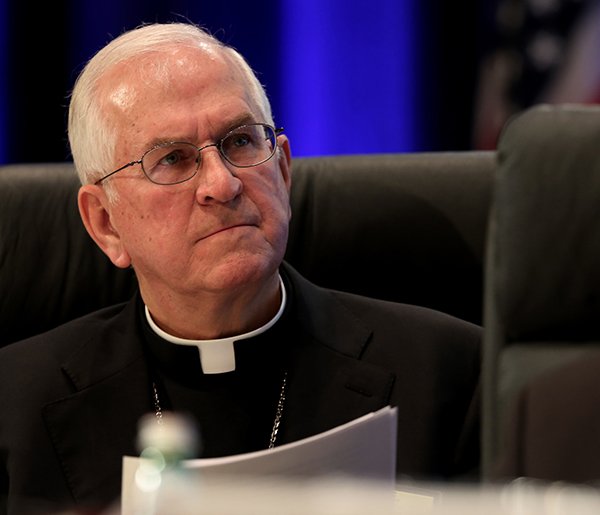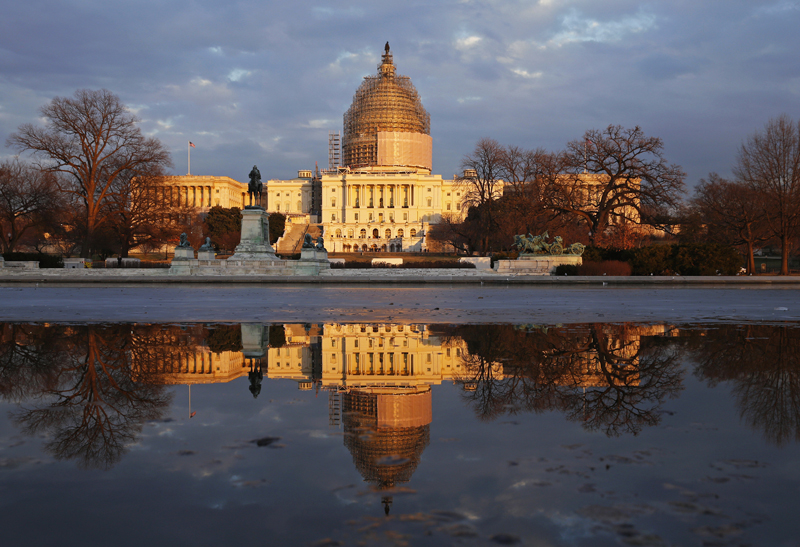WASHINGTON (RNS) Top leaders of the U.S. Catholic Church were scheduled to brief Congress on Thursday (June 18) and the White House on Friday on Pope Francis’ powerful encyclical on humanity’s responsibility to save the Earth.
Already, President Obama is on board. He issued a statement Thursday afternoon saying, he admired the Pope’s strong and eloquent call for all to “protect our children, and our children’s children, from the damaging impacts of climate change.”
And Catholic Climate Action plans events around the nation — particularly in key presidential primary states — to advocate for environmental action and bring it to the attention of the public before Pope Francis addresses Congress in September.

Archbishop Joseph E. Kurtz of Louisville, Ky., listens to a speaker on Nov. 10, 2014, during the bishops’ annual fall general assembly in Baltimore. Photo by Bob Roller, courtesy of Catholic News Service
But the pope is not issuing orders or policy statements to anyone, said Archbishop Joseph E. Kurtz of Louisville, Ky., president of the U.S. Conference of Catholic Bishops, and Cardinal Donald Wuerl of Washington, D.C., at a press conference Thursday.
“We need moral voices to tell us what we ought to do,” said Kurtz. He described the encyclical as a message to all to care for the vulnerable, use resources in a way that honors the fragile Earth and “cultivate religious virtues that show themselves in civic responsibility.”
Wuerl, mindful they were standing in politicized Washington, was more direct on whether Pope Francis was dictating orders on the economy, politics or science.
“He is offering a moral frame of reference. He is not saying, ‘You must do this,'” Wuerl said. “I think it’s a very good approach to say, ‘I will teach as pope. I am not telling you what the conclusion must be.’” The pope is speaking from a long-standing church tradition, said Wuerl, “applying the faith to the circumstances of our day.”
The encyclical begins with a chapter of empirical scientific data, “which saves this from being dismissed as simply abstract reflection,” and then lifts up these facts for moral reflection, said Wuerl.
Just because there is disagreement over the science does not make it any less imperative to address the issues, he said. “People have to make moral judgments now with whatever science is available to us.”
Both leaders said the lengthy teaching document is going to require months of study and “unpacking.”
But just in case people really want action specifics, the bishops’ USCCB website has plenty.
Kurtz pointed out that earlier popes and the U.S. bishops have been talking about care for creation for decades. “We are dealing with a train that is already running.”
LM/MG END GROSSMAN





